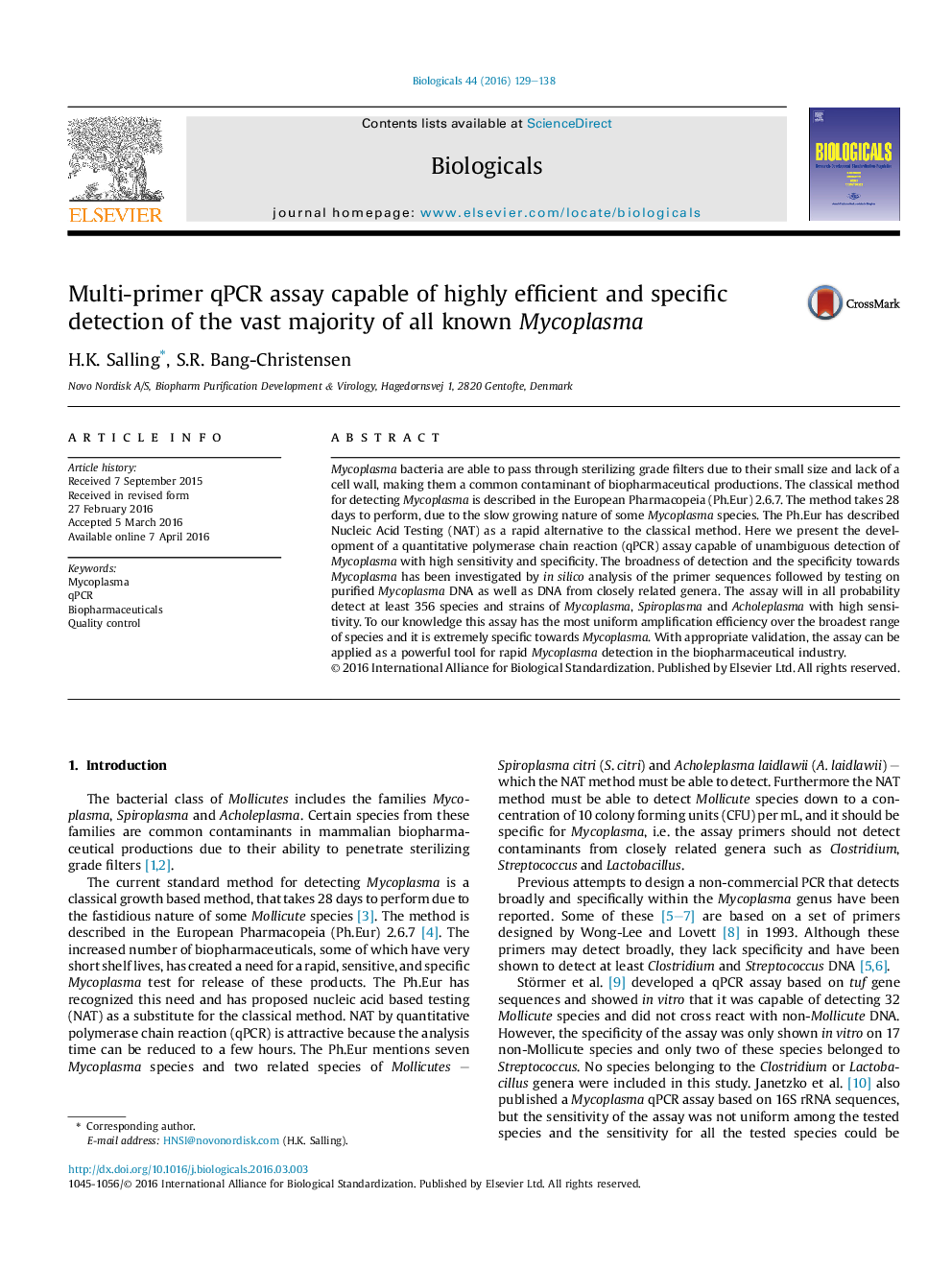| Article ID | Journal | Published Year | Pages | File Type |
|---|---|---|---|---|
| 2033945 | Biologicals | 2016 | 10 Pages |
Mycoplasma bacteria are able to pass through sterilizing grade filters due to their small size and lack of a cell wall, making them a common contaminant of biopharmaceutical productions. The classical method for detecting Mycoplasma is described in the European Pharmacopeia (Ph.Eur) 2.6.7. The method takes 28 days to perform, due to the slow growing nature of some Mycoplasma species. The Ph.Eur has described Nucleic Acid Testing (NAT) as a rapid alternative to the classical method. Here we present the development of a quantitative polymerase chain reaction (qPCR) assay capable of unambiguous detection of Mycoplasma with high sensitivity and specificity. The broadness of detection and the specificity towards Mycoplasma has been investigated by in silico analysis of the primer sequences followed by testing on purified Mycoplasma DNA as well as DNA from closely related genera. The assay will in all probability detect at least 356 species and strains of Mycoplasma, Spiroplasma and Acholeplasma with high sensitivity. To our knowledge this assay has the most uniform amplification efficiency over the broadest range of species and it is extremely specific towards Mycoplasma. With appropriate validation, the assay can be applied as a powerful tool for rapid Mycoplasma detection in the biopharmaceutical industry.
